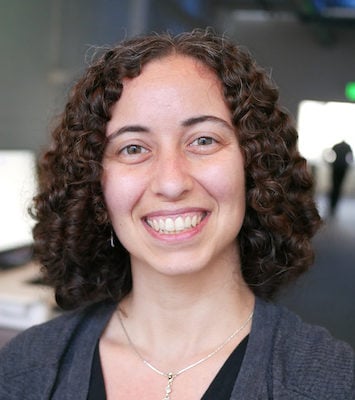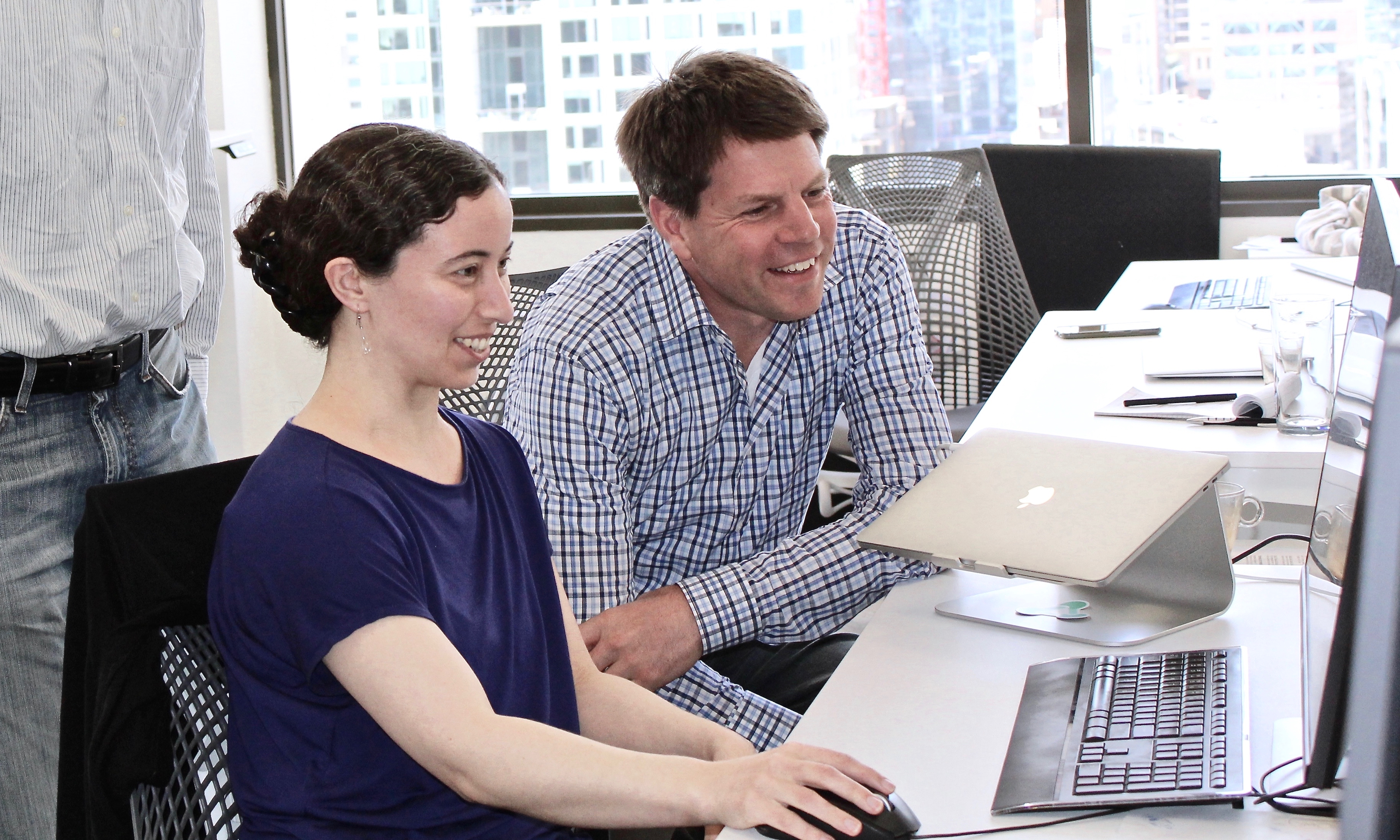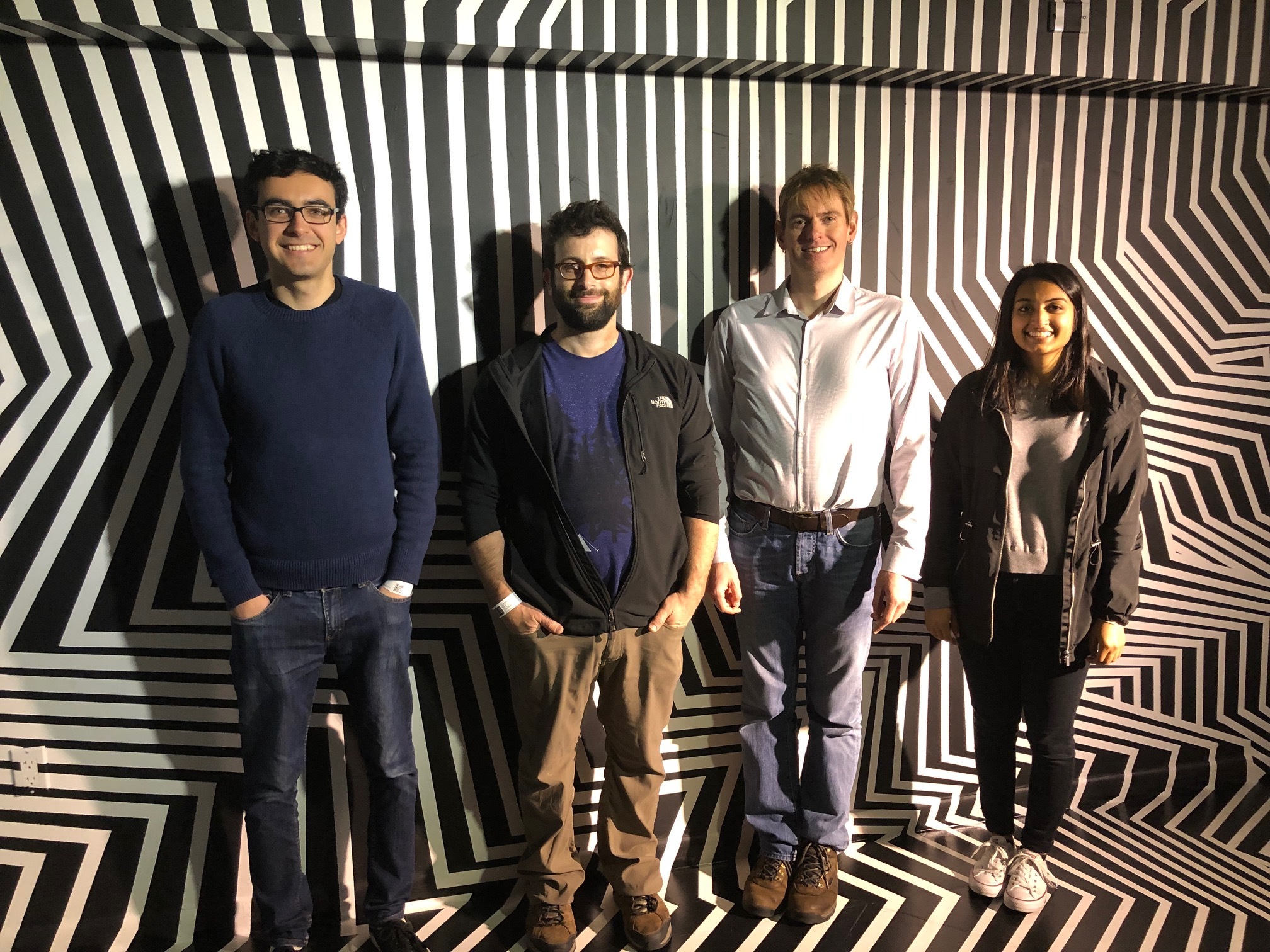Our Atoms Come together to Celebrate #INWED20
In celebration of this year’s International Women in Engineering Day, we asked a couple of our Atoms to share their experiences as women in the sciences and engineering, and how they think we can come together and create change in this field. Read on for their thoughts and experiences, and share your own accomplishments on social media using the #INWED20 hashtag. Be sure to tag us - @AtomwiseInc!
Women with STEM degrees or careers have historically been underrepresented. According to the National Science Board (NSF), “Women only represented 29% of science and engineering occupations, and 40% of S&E degrees, relative to their proportion of the U.S. residential population age 21+ in 2017 (52%).” While an improvement from the past couple of decades, there is still much work ahead of us to see gender parity in these critical fields.
To eliminate the stigma that only men can succeed in STEM we can all band together to help educate, inspire, and create a more inclusive, dynamic industry. By educating our youth about the accomplishments of women in this field, we can illustrate how they too can succeed. Here, two of our Atoms on the Engineering Team, Kate Stafford and Tushita Gupta, share their personal journey through STEM and experience at Atomwise.
Briefly describe your role at Atomwise.
 Kate Stafford: I’m a senior scientist on the cheminformatics team. We are essentially data scientists and engineers with a chemistry focus. At Atomwise, our core focus is to develop machine learning models that accurately predict interactions between small molecules (a category that includes most medicines on the market) and proteins. We curate and manage experimental data from a variety of sources to build datasets for model training and do research on topics like best representations for molecules and their protein targets. We work closely with our machine learning and computer-aided drug design (CADD) teams.
Kate Stafford: I’m a senior scientist on the cheminformatics team. We are essentially data scientists and engineers with a chemistry focus. At Atomwise, our core focus is to develop machine learning models that accurately predict interactions between small molecules (a category that includes most medicines on the market) and proteins. We curate and manage experimental data from a variety of sources to build datasets for model training and do research on topics like best representations for molecules and their protein targets. We work closely with our machine learning and computer-aided drug design (CADD) teams.
 Tushita Gupta: I am a software engineer on the engineering team responsible for maintaining and developing the production environment which is where we run our machine learning pipeline to evaluate potential drugs.
Tushita Gupta: I am a software engineer on the engineering team responsible for maintaining and developing the production environment which is where we run our machine learning pipeline to evaluate potential drugs.
What has been your favorite project you've worked on thus far at Atomwise and what have you learned from the experience?
Kate: A lot of my work at Atomwise has focused on curating and processing data related to proteins - large macromolecules that perform hugely diverse functions in all living things. Most medicines work by interacting with proteins found in the body to modify their functions, so making sure that we’re doing a good job representing proteins and their interactions with known drugs is really important. I’ve enjoyed this work because it has a wide impact on the rest of the company and making improvements in these areas can have a lot of leverage.
More recently I’ve been working on the problem of protein selectivity - that is, making sure a molecule only interacts with the proteins it was intended to target. When drugs interact with other proteins, this can be a source of side effects and even dangerous toxicity, so this is really important to get right and is a major challenge in the drug discovery field. I’ve enjoyed this work because it’s a real research challenge that has direct practical applications.
I’ve learned a lot from these projects - plenty of new or improved technical skills, but also a lot about working in a team and helping out the users of some of the tools I’ve built.
Tushita: My favorite project at Atomwise involved architecting and implementing a method to screen ultra-large libraries of novel drugs (over 10 billion) using various cloud computing resources and machine learning techniques. Through this project, I got great hands-on experience with new technologies that I’ve never worked with before which was very exciting to me. I also had the opportunity to work with great minds on different teams and ended up learning more about the machine learning and cheminformatics work that we do at Atomwise.
How and when did you become interested in engineering/science?
Kate: I don’t remember “becoming” interested in science; I think I always was. My parents always described me as a very inquisitive kid, and as far back as I can remember I was interested in the natural world, collecting rocks and bugs and things. It was learning about genetics and evolution that really turned my interest toward molecular biology. The excitement around the Human Genome Project made a big contribution too - which I’ve heard from a lot of people around my age in the life sciences.
Tushita: I grew up surrounded by science (my parents and extended family are mostly doctors and engineers) so early on in my childhood I was able to explore and get hands-on experience in the field. Early exposure to things like programming and working in bio labs was key to fostering my interest in STEM and it eventually shaped my education and career choices.
What is your proudest accomplishment in your career?
Kate: The first time as an undergrad that I designed and performed an experiment myself, and got an interesting result. I thought, wow, I could be the only person in the world who knows this right now - I almost didn’t want to tell anyone! That sounds small but it really stuck with me to realize that I could make real contributions, not just solve problem sets and study for exams. I felt similarly when my first scientific paper was accepted - that I was actually contributing to the conversation, not just listening to it.
Tushita: Working at Atomwise has been my first job since graduating but I am proud to be part of the engineering efforts that allowed Atomwise to perform the largest virtual screen ever!
What challenges or obstacles have you faced in your career?
Kate: I’d always thought I wanted to become a bench scientist, working with my hands in the lab. So it was really unexpected when I started working in labs and realized I don’t enjoy bench work much at all! I liked analyzing my data a lot more than collecting it. One result of this trajectory is that my educational background is mainly in biochemistry - I learned most of what I know about coding and software on my own or on the job.
Early in my career I really didn’t fully appreciate how sexism might be a barrier - I expected that if I encountered sexism it would be obvious, someone saying “You can’t do that because you’re a girl.” It took a long time to recognize the subtle effects of microaggressions and small signals that women don’t belong or are an afterthought in some tech spaces. There’s only so many times you can go to a tech event and have men assume you’re not a technical attendee before you realize it’s a pattern, not a one-off mistake. There’s some extra cognitive load even for routine things.
Still, overall, I’ve had a fairly privileged career path, and I think that’s important to acknowledge. Social barriers that have a disproportionate impact on underrepresented groups is something that the STEM community really has to confront and reckon with.
Tushita: I’ve struggled with finding female mentors because of the lack of female representation in STEM. Though I am early in my career, I think it’s important to learn from other womens’ experiences and shape my own professional journey accordingly. Thankfully, I have a good group of female friends from college that work in the same space as me now and we are able to support each other. However, it would also be great to learn from an experienced female role model/mentor with knowledge on how to navigate a male-dominated field successfully.
Who are the female thought leaders you admire?
Kate: I have a few:- Daphne Koller, founder and CEO of Insitro. She’s had a richly varied career and is now one of the most visible women in a field very closely related to the one I work in.
- Anima Anandkumar, professor at Caltech and director of machine learning at Nvidia. She does really interesting research and also has shown a lot of leadership in confronting inequities in the field.
- Mariatta Wijaya, Python core developer and engineer at Zapier. It’s great to see women in prominent roles in open-source projects.
- Arlan Hamilton, founder of Backstage Capital, a VC firm that invests in companies whose founders come from underrepresented groups. She has a fascinating personal story and a really smart approach to business.
- >Chanda Prescod-Weinstein, a physics professor at the University of New Hampshire. Her writing on historical inequities in the sciences is very thought-provoking. I first learned about her on Twitter and following her has been really influential in my thinking.
Have you ever received female mentorship, or been one yourself?
Kate: All of my formal mentors have been men. I haven’t done much formal mentorship of others yet, either. What I have found really helpful is a community of near-peers - people who are at a similar career stage, plus or minus a few years - who can share their experiences. People who have just recently followed a path you’re considering can be great resources as far as concrete, practical advice. I identify as bi/pansexual, and I really appreciate spaces where I can get together with other women or other queer people in STEM.

What advice do you have for other women and girls who want to pursue a career in engineering/science?
Kate: If you’re a student, regardless of major, I’d recommend taking at least one class that will give you some practical experience writing code for a real project, at least one statistics class, and at least one class that covers ethics and history of science.
It’s almost a cliche at this point that women hesitate to apply for things if they don’t meet most or all of the qualifications. I’ve definitely had this problem, and talking myself out of it sounds so reasonable - “Oh, I don’t want to waste anyone’s time, I’m not really what they’re looking for.” Don’t listen to that voice, do it anyway!
Something I’ve thought more about as my career has progressed is being more intentional about looking for ways to lift up other people in underrepresented groups and amplify their voices. I feel like I’ve heard a ton of advice about “networking,” but very little of it was about how to be a useful part of someone else’s network. So for women who’ve already started their STEM careers, I think this is really important to think about as you move forward.
Tushita: I’ve found that there is no right way to succeed so it’s important to take the time to explore what works for you, and don’t be afraid to define your own path to success. Because there isn’t enough representation of women in STEM it can be hard to find a role model, but that doesn’t mean your ideas of what success looks like are not valid.
It's also SO important to value yourself and your contributions because if you don’t others won’t either! I’ve found that women, especially early in their career, often experience imposter syndrome which keeps them from speaking up and putting themselves forward, but knowing your lack of confidence is what’s keeping you from new opportunities is ultimately more frustrating. Take the time to identify situations where you lack confidence from speaking up in a meeting to negotiating salaries and give yourself time to mentally prepare. Having allies is really helpful because they can give you the perspective you need so find a support group of colleagues or friends in your field who have similar experiences and can empathize with you.
What steps need to be taken to get more women in STEM?
Kate: A lot of thinking on this topic focuses on the “pipeline problem” - getting more young women and girls to start out in STEM. I think that can be difficult without also working on retaining the women who are already in the field, and making sure they have opportunities to grow and develop. Making sure women are represented on panels and speaker lists, and not in a token way or only as the “diversity” speaker. If there are meetings with only men in the room, ask why and think about who you didn’t invite and what you might be missing. One helpful way of thinking is a tech version of the Bechdel test from film - a minimum baseline to aim for on a team is that women are able to speak to other women about technical topics as a natural part of their work, without having to deliberately seek each other out.
Tushita: Introducing women to STEM early in their education is really important in allowing them to gain interest and seek opportunities. Ideally you want to introduce them to STEM as early as possible before they develop stigmas of what it’s like for women in STEM. Seeing representation of women early on will also make STEM more approachable and encourage more girls to join. Programs like internships, mentorship programs, courses etc. are not only a great chance to explore the diversity of fields within STEM but also a great way for girls with similar interests to build a community and find mentorship.
What’s your favorite thing about working at Atomwise?
Kate: The team environment is really great. I really enjoy working with people who also obviously really enjoy what they’re working on, and I like the fact that we are doing interesting, creative research with a practical focus. I think we’ve done a good job so far on keeping our culture while scaling up from when I started and we all fit around one lunch table to now having about 60 people, and it’s really exciting to be a part of that.

Tushita: Atomwise has a great culture of learning and openness and we have frequent meetings with the sole purpose of sharing our work, research and novel ideas. I love this because it gives me the opportunity to learn about different fields of STEM from cheminformatics to machine learning to devops, as well as the intersection of them all.
What do you like to do outside of work? (hobbies, projects, etc.)
Kate: I enjoy cooking and baking. I like to run, though I’m very slow! I also have a bit of a fascination with editing Wikipedia - it can be really rewarding to contribute a little to an article and then see others build on your contributions.
Tushita: Outside of work I enjoy rock climbing, playing the piano, painting and singing (mostly in the shower!).
Join Our Talented Team
Help us invent the future of pharmaceutical research.
Related Posts
Subscribe
Stay up to date on new blog posts.
Atomwise needs the contact information you provide to send you updates. You may unsubscribe from these communications at any time. For information please review our Privacy Policy.
